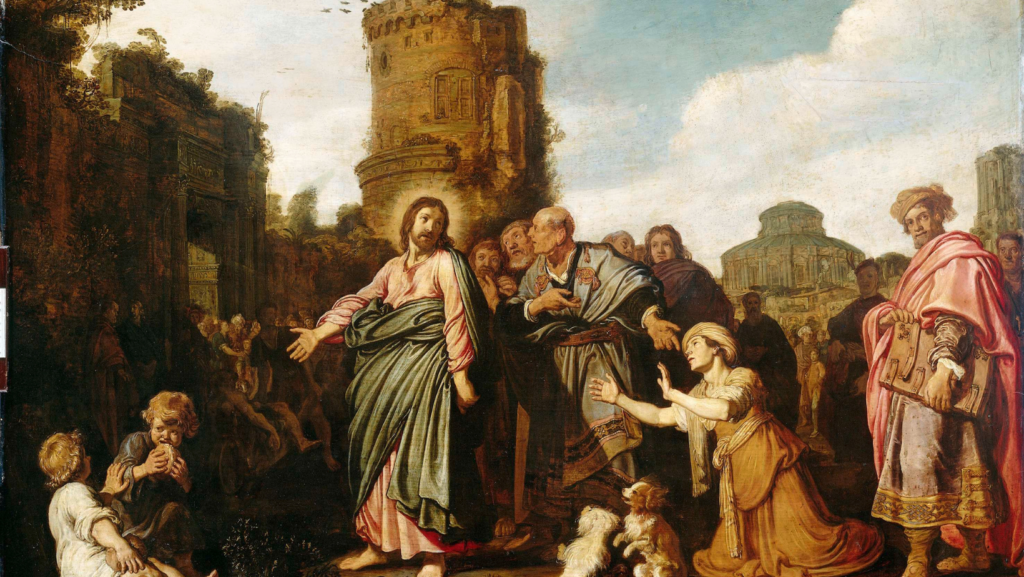In exploring the life and teachings of Jesus, understanding the cultural context of his time offers profound insights into his words and deeds. Jesus lived in a world rich with traditions, customs, and social norms that shaped his interactions and messages. By examining the historical and cultural backdrop of first-century Judea, one can gain a deeper appreciation of his revolutionary teachings and actions.
The nuances of Jesus’s parables, the significance of his miracles, and the impact of his ministry resonate differently when viewed through the lens of his cultural environment. This perspective not only enhances the comprehension of biblical texts but also enriches the spiritual connection for modern believers. Delving into the cultural insights surrounding Jesus’s life invites readers to discover a more profound understanding of his timeless influence.
Understanding Jesus: Cultural Insights Into the Words and Deeds of Christ

The book Understanding Jesus: Cultural Insights Into the Words and Deeds of Christ offers a comprehensive examination of the historical and cultural contexts surrounding Jesus’s life. By delving into the traditions, beliefs, and societal influences of first-century Judea, the text provides a fresh perspective on his teachings.
Readers can explore how Jesus’s parables and actions reflect the customs of his time. For instance, agricultural metaphors, prevalent in his messages, connect directly to the agrarian society he addressed. Analyzing such elements allows for a deeper comprehension of his narratives and their intended meanings.
The work also highlights how understanding these cultural nuances enhances interpretation of his miracles. In a society where miracles often demonstrated divine authority, recognizing the cultural expectations and interpretations of the miraculous is crucial in grasping their full impact.
Furthermore, the book invites modern believers to engage with Jesus’s teachings in a way that acknowledges their historical context. This approach enriches one’s spiritual journey by offering a more textured and profound appreciation of the timeless lessons that continue to resonate today.
Author’s Perspective

In Understanding Jesus: Cultural Insights Into the Words and Deeds of Christ, the author’s deep expertise informs the examination of Jesus’s life within first-century Judea’s cultural context.
Background and Credentials
The author holds advanced degrees in theology and anthropology, equipping them to bridge historical and cultural studies. Their research, published in respected journals, focuses on intercultural influences on religious texts. Years of academic involvement in biblical studies, combined with fieldwork in the Middle East, contribute to their nuanced insights into Jesus’s era.
Approach to the Subject Matter
The author explores Jesus’s teachings with a methodical analysis of historical and cultural dimensions. They employ primary sources from Jesus’s time, such as historical records and archaeological findings, to reconstruct the cultural landscape. By aligning Jesus’s words and miracles with prevailing customs, they reveal layers of meaning often obscured by time. This rigorous approach allows readers to perceive the deep socio-cultural connections influencing Jesus’s ministry.
Key Themes
Exploring key themes in Understanding Jesus: Cultural Insights Into the Words and Deeds of Christ involves understanding the profound cultural influences that shaped his teachings and actions. These insights reveal deeper connections between his deeds and the society in which he lived.
Cultural Context of Jesus’ Teachings

Jesus’s teachings often reflected the customs and beliefs of first-century Judea. Many of his parables used everyday elements such as farming, shepherding, and family life, familiar to his audience. For example, the Parable of the Sower resonated with those in an agrarian society who understood the challenges of farming. By using these common experiences, Jesus communicated profound spiritual truths in an accessible way (Mark 4:3-9). Recognizing these cultural references helps modern readers grasp the intended messages and their implications for spiritual growth.
Analysis of Jesus’ Actions
Examining Jesus’s actions within their historical and cultural context uncovers layers of meaning. His miracles, such as healing the sick and feeding multitudes, demonstrated divine authority and compassion (Matthew 14:13-21). These acts fulfilled cultural expectations of a messianic figure and validated his teachings. Additionally, Jesus’s interactions with marginalized groups, like lepers and tax collectors, challenged societal norms and underscored themes of inclusion and redemption (Luke 19:1-10). By analyzing these actions, modern readers can appreciate the implications of Jesus’s ministry on social justice and human dignity.



